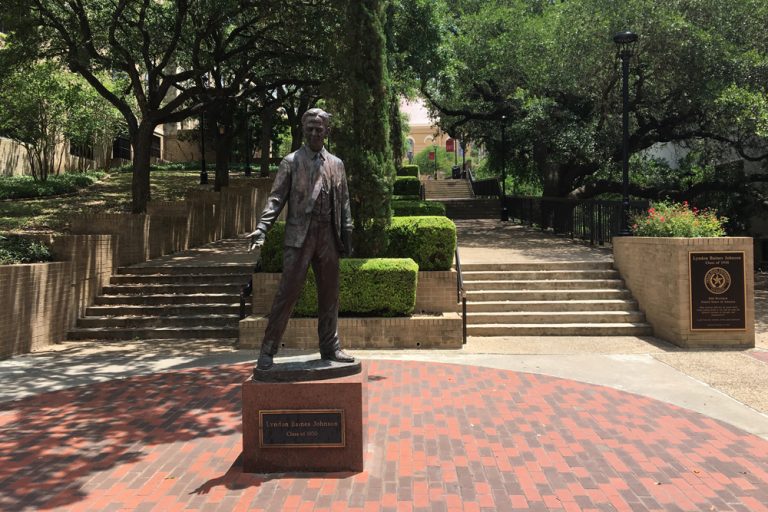

SAN MARCOS – Todd Hudnall, an associate professor in the Department of Chemistry and Biochemistry at Texas State University, has been awarded a three-year, $195,000 grant from the Welch Foundation to develop methods to synthesize and prepare diborylcarbenes, an exotic form of carbon.
Carbenes are highly reactive molecules and generally unstable outside of laboratory conditions. Diborylcarbenes are a particularly intriguing class of carbenes for researchers, as they are electrophilic—that is, they accept electron pairs—making them potentially useful in the exploration of new frontiers in fundamental chemistry.
“Diborylcarbenes are molecules that have been studied computationally and been theorized about since the 1960s,” Hudnall explained. “People have tried to prepare them since the 1960s but haven’t really been successful. We’re developing new strategies based on more current chemistry that has evolved over the last two decades or so.”
Hudnall’s team hopes to capitalize on knowledge gained from recent advances in the preparation of other types carbenes and the utilization of new starting materials to successfully prepare diborylcarbenes. Upon isolation in the laboratory, the researchers will study the diborylcarbenes using an array of modern analytical techniques. Understanding the novel properties and structures of the carbenes’ architectures could pave the way for new developments in synthetic chemistry, catalysis and novel chemical reactivity.
“Chemists are taking carbenes, which were once very elusive and difficult-to-isolate compounds, and now using them to try and stabilize or generate even more reactive molecules. Carbenes are really useful at stabilizing other exotic molecules that we may find applications for,” Hudnall said. “I think there’s a kind of elegance in that, from a synthetic chemistry point of view. We’ve tamed the beast, so to speak, and chemists are now using these things to tame and isolate things we couldn’t even imagine 20 to 30 years ago.
“To date, diborylcarbenes are the only type of carbene that has been theoretically proven stable with an electronic configuration completely different from every other known carbene,” he said. “What’s really neat is that we now have different strategies to prepare these things where we can change the electronic properties of the carbene itself. This means that with a minor tweak, diborylcarbenes should radically change their electronic properties. Once we make them, we can then begin to study the new chemistry these molecules open up in a variety of different areas.”
The Welch Foundation, based in Houston, is one of the nation’s largest private funding sources for basic chemical research. Since its founding in 1954, the organization has contributed to the advancement of chemistry through research grants, departmental programs, endowed chairs and other special projects at educational institutions in Texas.
The foundation hosts an annual chemical research conference in Houston that attracts hundreds of the leading chemists and sponsors the Welch Award in Chemistry. The Foundation also bestows the Norman Hackerman Award in Chemical Research, which recognizes the work of scientists who are early in their careers and working in Texas.
The San Marcos City Council received a presentation on the Sidewalk Maintenance and Gap Infill…
The San Marcos River Rollers have skated through obstacles after taking a two-year break during…
San Marcos Corridor News has been reporting on the incredible communities in the Hays County…
Visitors won't be able to swim in the crystal clear waters of the Jacobs Well Natural…
Looking to adopt or foster animals from the local shelter? Here are the San Marcos…
The Lone Star State leads the nation in labor-related accidents and especially workplace deaths and…
This website uses cookies.